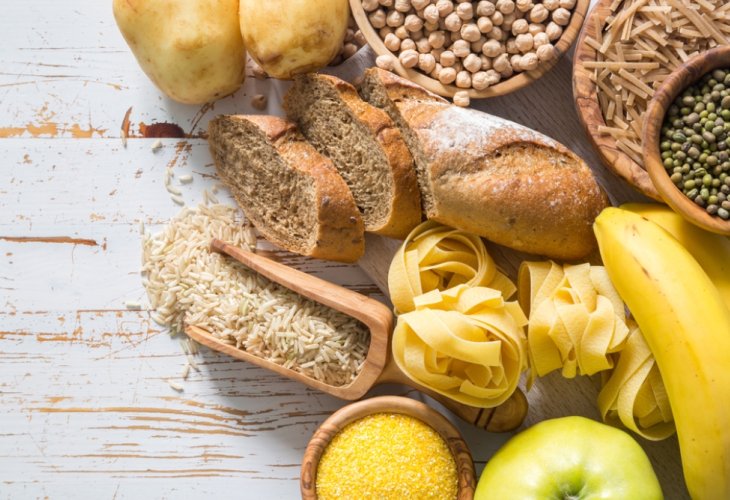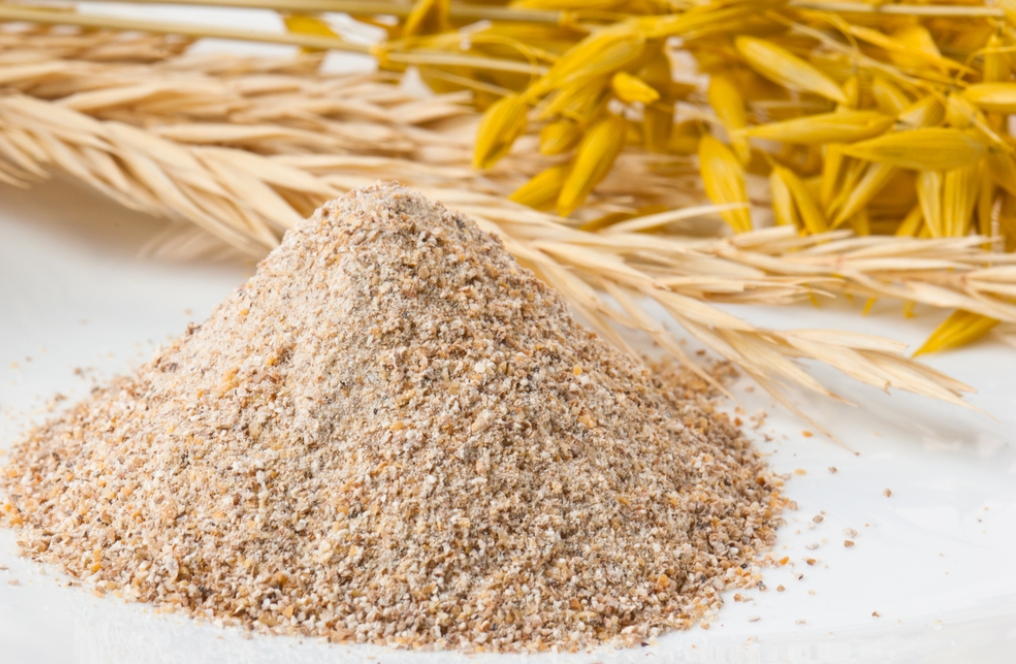The Sweet Truth: Navigating Carbs and Sugars with a Modern Approach
How do carbohydrates work in our bodies? Which sugars should we prefer? Learn the effects of sugar on health and how to reduce intake.
 (Photo: shutterstock)
(Photo: shutterstock)First it was cholesterol, then gluten, and now sugar is in the spotlight—though perhaps it always was?
With so much information, lectures, videos, opinions, and articles, it's overwhelming.
How do we take all that information, filter out the essentials, and translate it into simple language for everyone?<
First, let's clear up a basic fact: carbohydrates are sugar. Surprisingly, not everyone knows this.
Carbohydrates are found in almost all food, so when someone tells me they're on a carb-free diet, I wonder if they realize even a tomato contains carbs, as well as eggs and cheese.
But why are carbs present in almost every food?
To answer that, we need to understand what carbohydrates truly are.
Our sun sends us light energy, which plants absorb to produce carbohydrates (glucose) through photosynthesis. Herbivores obtain carbs from these plants, and carnivores get carbs from animals that ate plants. As omnivores, humans get carbs from both animal and plant sources.
When I learned about the process, I was amazed—carbs are actually the tangible embodiment of the sun's energy!
I marveled at the scripture: "How numerous are Your works, Hashem, with wisdom You made them all; the earth is full of Your creations."
Carbs and sugars give us energy.
Our body requires a certain amount of sugar (glucose) in the blood at all times. Our body works hard to maintain this balance, trying to avoid sugar levels that are too high or too low.
After a meal that includes carbohydrates, blood sugar levels rise (a glycemic response), which is normal. The body is equipped to restore sugar levels to normal. Problems arise when sugar spikes dramatically or when we overconsume carbs. This can lead to hyperactivity, obesity, high blood pressure, triglycerides, and type 2 diabetes, among other issues.
The solution is simpler than we think.
To address this, we need to know the different types of carbs and sugars and how they are absorbed by the body. Not all sugars are the same. In nature, balance and harmony reign.
For example, fruits are rich in sugar and also in dietary fiber. The fiber slows sugar absorption in the blood, keeping it regulated.
Another example is grains: bread, pastries, and anything made from flour. Grains are carb-rich but also rich in fiber (in the bran), vitamins, minerals, and nutritious goodies found in the grain germ.
The problem came with the industrial revolution, which made foods cheaper, more durable, and more available—but stripped them of life, leaving them inert. The industry took wheat, stripped it of its fiber-rich bran and germ (the living, regenerative part of the grain), leaving only the starchy "empty carbohydrates" devoid of their intended nutrition, thus creating white flour.
White flour is more stable, with a longer shelf life, mainly because, once devoid of life, even microorganisms that would quickly spoil whole grain flours have no interest in white flour. If those microorganisms of nature find nothing beneficial in white flour, that's an initial red flag.
Something to think about—if whole wheat bread is called "living bread," what should we call white bread?
Today, there are excellent whole flours suitable for any recipe that calls for white flour. I highly recommend Rubinfeld/Rimonim flour. A mother I know praised the Tamam brand, and I haven't tried it yet. Another suggested Ki-Tov's whole flour, which I also haven't tried. I earn nothing from these brands—my recommendation is purely from experience. These flours work beautifully in baking. You won't notice a difference in cakes, and in challahs and pastries, they even enhance the flavor.
I want to take this opportunity to commend my mother-in-law for embracing my "quirky" ways, making jachnun, kubaneh, and lahoh for Shabbat's second meal from whole spelt flour. Not only did the switch enhance the flavor, but the heavy sensation typical of regular jachnun is gone. It feels lighter and more comfortable to digest.
Switching to quality flour instead of lifeless white flour was so successful even some of my mother-in-law’s sisters and sisters-in-law have switched to whole flour.
(If there's interest from you, the readers, I'm happy to spend a day in the kitchen with my mother-in-law to film and write an entire article on preparing a healthy traditional second Shabbat meal, Yemeni-style.)
I highly recommend switching to whole flour, whole bread, whole pasta, and even whole couscous.
 (Photo: shutterstock)
(Photo: shutterstock)For rice, there's no need to switch to brown rice. It's better to choose basmati rice, which has more fiber compared to white rice. It has a relatively low glycemic index and significantly less arsenic than both white and brown rice.
So, in conclusion—when it comes to grain, go whole, choose live flour, as the saying goes: "I have set before you life and death, blessing and curse, and you shall choose life."
This way, the absorption of carbs/sugars will be more measured, controlled, and without dangerous extremes, with the added nutritional value of fibers, vitamins, and minerals.
Now about sweeteners. Many women ask me what's preferable: brown sugar? Demerara sugar? Honey? Agave? Silan? Maple? Or stick with white sugar?
The answer is simple—it's all about cost versus benefit.
Demerara and brown sugar contain slightly more fibers than plain white sugar. The question is whether that slight increase justifies the price difference.
Agave syrup and maple syrup might be natural, but they break down rapidly in the body, similar to white sugar—I haven’t found them to have any substantial added value.
Honey and silan also break down quickly in the body, causing blood sugar to spike, but they have nutritional value over white sugar.
Don’t forget the new kid on the block—coconut sugar. It deserves its own paragraph. Coconut sugar isn't actually sugar; it's the nectar of the coconut flower. It has a sweet, caramel taste that’s delicious in moist cakes but less suitable for yeast pastries. It’s rich in vitamins, minerals, and amino acids, and most importantly: it doesn’t cause blood sugar spikes. Its drawbacks? Not everyone likes its taste, and it's expensive. Very expensive. I find it excellent for sweetening hot drinks, and it can certainly replace white sugar in cakes for those who can and want to.
A great tip I learned from Noa, my guru and professor of naturopathic nutrition: For every cake recipe, reduce the sugar by half and add a pinch of salt. Just a tiny pinch of salt helps highlight the flavors of other ingredients in the cake. Therefore, when calculating cost versus benefit, it’s better to add a pinch of salt and reduce sugar by half. Try it and see for yourself.
By the way, when it comes to artificial sweeteners heavily featured in diet products, I find that they tend to do more harm than good, so I choose not to address them at all.
Now we’ve met the good (or more accurately the better option)—whole carbohydrates (whole bread, spelt bread, whole flour, etc.). We've also met the bad—simple carbs (white sugar, white bread, white flour, etc.). Let's meet the ugly:
In his lecture "Sugar: The Bitter Truth," Jewish pediatric endocrinologist Dr. Robert H. Lustig blames the food industry for the obesity and disease epidemic due to the rampant and alarming addition of high-fructose corn syrup to foods. Processed food, especially breakfast cereals and soft drinks, are dangerous and unnecessary.
Listen to him; he knows what he's talking about. In his clinic, he sees children daily with type 2 diabetes. It used to be called "adult-onset diabetes"; now, it’s not just a condition of adults.
I completely agree. Instead of sugar-laden breakfast cereals swimming in lactose-rich milk (another kind of sugar), one can serve a slice of whole bread with quality spread (I'll dedicate a future post to healthy spreads if Hashem blesses me with the opportunity), alongside fresh, crisp veggies.
Soft drinks? Unnecessary.
If I'm the one who usually advocates for moderation and avoiding extremes—advising you to steer clear of sweetened beverages, please take my advice and switch to water. Water—the "champagne of nature."
This past Purim, we celebrated our eldest son's birthday and invited close friends. We served snacks and candy at the party (pretzels, popcorn, wafers, and chocolate snacks. We completely avoided candies/marshmallows/sour sweets and anything with food coloring). The kids also ate pizza, but for drinks, we served water. Only water. We bought personal water bottles with colorful sports caps—they were a hit. No child asked for juice or soda. No child missed the sweetened drinks. No child stayed thirsty. With Hashem's help, and without making a vow, we'll serve water at upcoming events as well.
When my new nephew was born, my mom and sister organized the Brit Milah at home and arranged excellent dairy catering. At my suggestion, there were mineral water bottles on the table centers. And that's it. No juice. No coke. No iced tea. Just water. There was something clean, refreshing, and pure in those water bottles spread among the salads, alongside trays of cheeses, pasta, and quiches.
When we're invited to meals or parties where soft drinks are served, my kids know—only one cup of sweetened beverage at the end of the meal, and even that is too much, in my opinion.
In the next post, I plan (with Hashem's help) to provide a recipe for an excellent chocolate-dripping cake. The original recipe is from the amazing, talented Karin Goren, with some health-conscious tweaks.
Enjoy, and let me know how it turns out and what the feedback was.
Until then, wishing you much health,
Chen Tovi

